(Page créée avec « The Sayary Greenhouse is entirely digged in the ground and benefits from the earth's constant temperature. ») |
(Page créée avec « If, for ergonomic reasons, the walls need to be a bit higher than initially, it is possible to add some adobe bricks above the ground. ») |
||
| Ligne 53 : | Ligne 53 : | ||
|Step_Content=The Sayary Greenhouse is entirely digged in the ground and benefits from the earth's constant temperature. | |Step_Content=The Sayary Greenhouse is entirely digged in the ground and benefits from the earth's constant temperature. | ||
| − | + | If, for ergonomic reasons, the walls need to be a bit higher than initially, it is possible to add some adobe bricks above the ground. | |
Comme pour la Wallipini, la charpente en bois est couverte d'une bâche plastique. | Comme pour la Wallipini, la charpente en bois est couverte d'une bâche plastique. | ||
Version du 4 février 2019 à 16:04
Description
Wallipini et Sayary : 2 types of greenhouses which originally come from the Aymaran civilization. These techniques are used nowadays to cultivate vegetables in the Altiplano in Bolivia.
Introduction
The Altiplano is a dry and cold area where almost only root vegetables are cultivated: potato, chueño, onions, carrots. All of them grow underground and the earth protects them from hard climatic conditions.
In order to eat other kinds of vegetables, the Granja Ecológica Ventilla which is located in El Alto, La Paz's highest neighborhood (4000m high), uses 2 types of greenhouses: the Wallipini and the Sayary. These greenhouses originally come from the Aymarian civilisation, born 2 centuries B.C. (pre-inca era) around the Titicaca lake.
Thus, are cultivated at the Granja Ecológica Ventilla salads, oregano, thyme, sage, celery, kale-cabbage, rhubarb, spinach, following ancestral konw-how from the Aymarian culture.
Matériaux
- Adobe (using bricks of clay and straw) to build the walls,
- Bricks to build columns to support the roof
- Wood for the framework
- Plastic (agroplastico) tarpaulin for the roof
- mud and/or black nets to control the temperature
Outils
Étape 1 - The Wallipini: Half-buried greenhouse
The Wallipini greenhouse is half-buried in the ground and is built like a house with:
- walls made of Adobe (mix of clay and straw),
- a framework made of wood
- a roof made using a plastic tarpaulin (agroplastico).
The Adobe walls store the heat during the day and deliver it inside the greenhouse at night. The inertia of the walls maintains an almost constant temperature inside the greenhouse. As La Paz is close to the equator, the sun is usually at zenith, the greenhouse's orientation does not really matter and the walls do not interfere with sun radiations.
In the Wallipini, the vegetables can be cultivated 7 months per year (the Wallipini is not efficient enough against cold winters).
Étape 2 - The Sayary: buried greenhouse.
The Sayary Greenhouse is entirely digged in the ground and benefits from the earth's constant temperature.
If, for ergonomic reasons, the walls need to be a bit higher than initially, it is possible to add some adobe bricks above the ground.
Comme pour la Wallipini, la charpente en bois est couverte d'une bâche plastique.
La température à l'intérieur de la Sayary peut atteindre 45°C. Elle est contrôlée en permanence afin d'optimiser les conditions à l'intérieur de la serre (température constante, hygrométrie). Pour réduire la température (à 20°C par exemple), des filets noirs sont tendus au dessus des cultures, ou de la boue est déposée sur la bâche, créant ainsi des zones d'ombre modulables au dessus des cultures les plus sensibles aux excès de température. Moduler l'ombre au dessus de chaque culture permet d'optimiser les conditions au sein d'une même serre, en protégeant par exemple davantage l'origan, plus sensible à la chaleur que le thym. Ce principe de régulation de température peut également être appliqué aux Wallipinis.
La Sayary permet de cultiver toute l'année légumes et aromatiques.
Notes et références
La Granja Ecológica Ventilla détient un label biologique. Le fertilisant utilisé est un mélange de compost, de bouse de vache et de lombricompost. Huit vaches sont élevées pour la production de fromages et de bouse pour le compost. Leur alimentation saine repose sur un mélange de plantes montées en fleurs provenant des serres, de céréales achetées dans le commerce (orge - cebada), et des résidus végétaux issus du processus de fabrication de bière locale.
La mise en place de ruches permet la pollinisation des plantes cultivées par les abeilles.
L'irrigation est manuelle et journalière. L'eau provient d'un bassin de récupération des eaux de pluie.
La chaleur des serres permet un propagation très rapide des maladies, c'est pourquoi il est nécessaire de contrôler fréquemment l'état de santé du sol et des plantes.
Les légumes sont conditionnés sur place dans une "chambre froide" : un bâtiment maintenu impeccablement propre aux murs épais (60cm) qui conserve la fraîcheur. Directement après la récolte à l'aube, les légumes sont lavés, séchés sur des filets, triés et sélectionnés, emballés et étiquetés avant d'être livrés dans les supermarchés locaux.
Plus d'infos sur la Granja Ecológica Ventilla par ici : https://www.facebook.com/Productosventilla/ et sur cette vidéo : https://www.youtube.com/watch?v=sFNC-78cvkE
Published
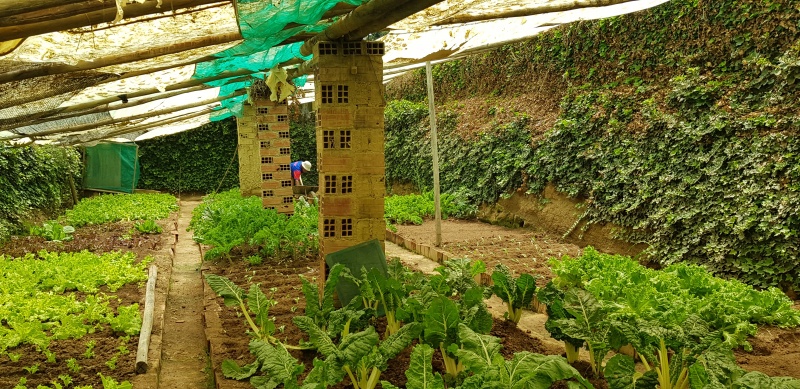
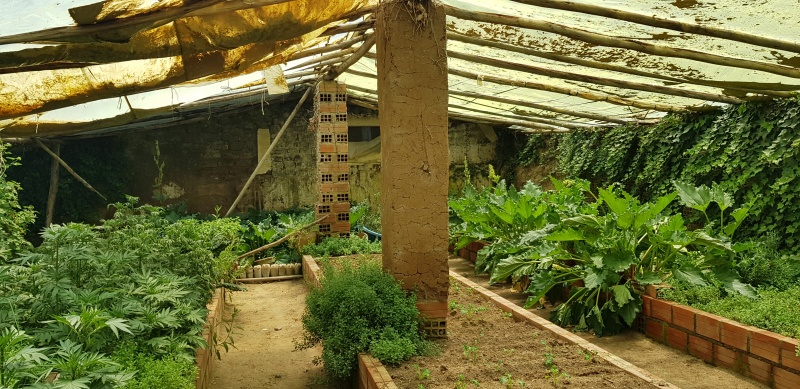
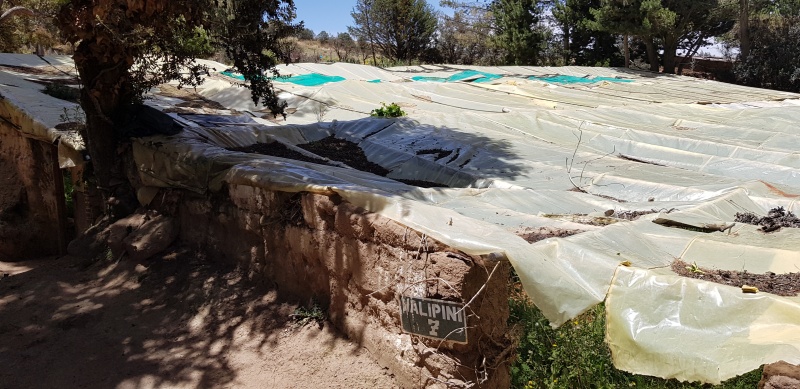
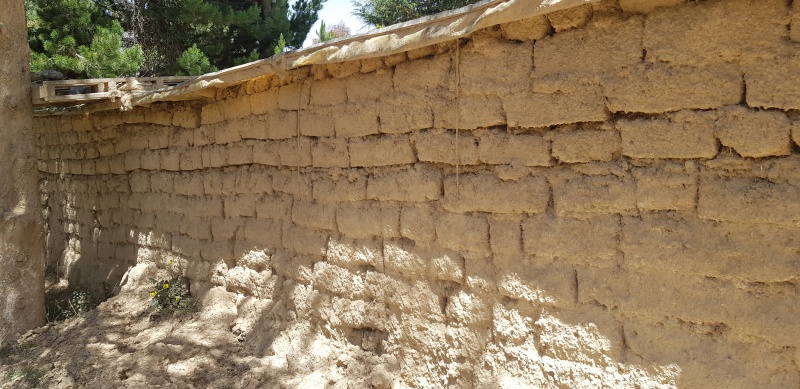
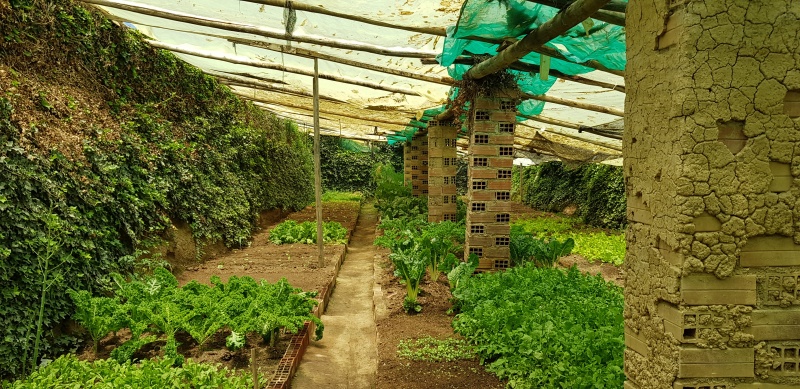
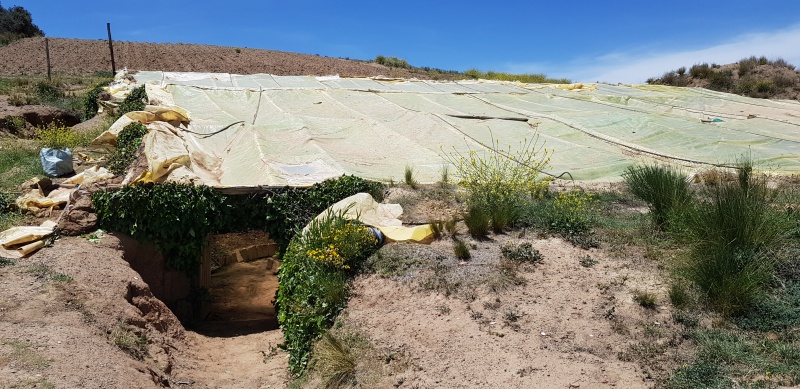
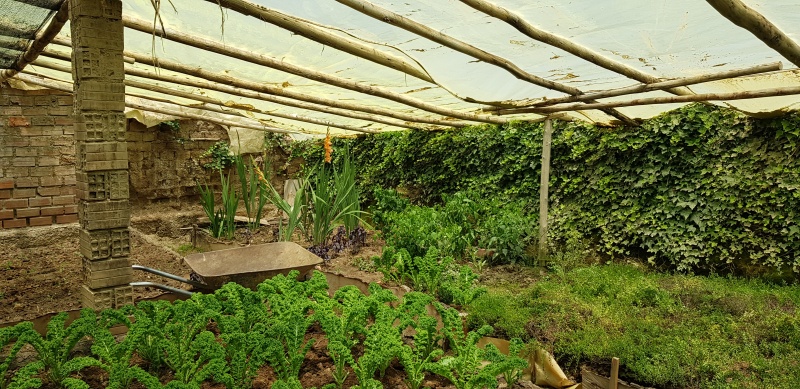
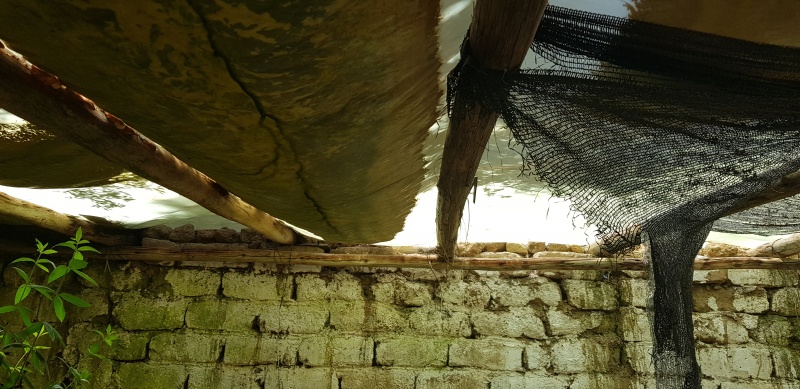
 Français
Français English
English Deutsch
Deutsch Español
Español Italiano
Italiano Português
Português